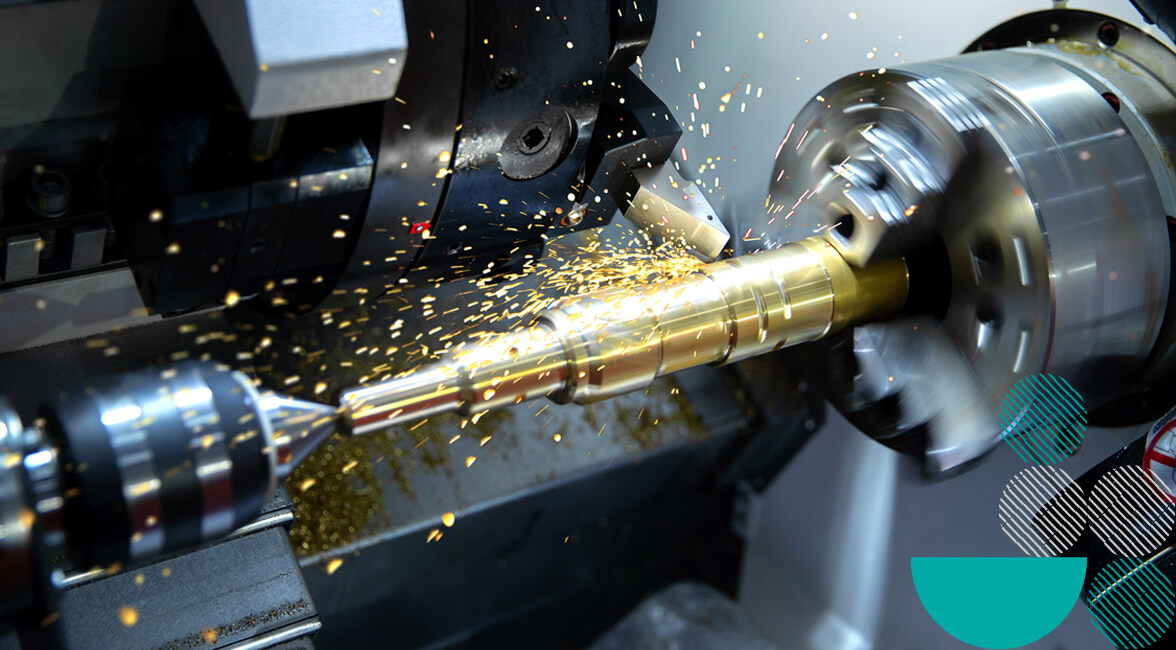
In today’s fast-paced, quality-conscious manufacturing world, the difference between a good product and a great one often comes down to a single factor: precision. When working with aluminium—a metal favored for its strength-to-weight ratio, corrosion resistance, and versatility—precision isn’t just preferred; it’s essential. At Beyond Lineals, we understand the importance of machining aluminium components to exact specifications. It’s not just about cutting metal; it’s about creating performance-driven, visually appealing, and consistently reliable components.
This blog explores why precision machining matters in aluminium component manufacturing, and how it impacts industries from aerospace to architecture.
🛠️ What Is Precision Machining?
Before diving deeper, let’s clarify what precision machining really means. Precision machining involves using advanced tools and technologies—such as CNC (Computer Numerical Control) machines—to manufacture parts with extremely tight tolerances. It’s the art of transforming a raw aluminium profile into a finely crafted component with exact dimensions, smooth finishes, and perfectly aligned features.
Unlike traditional methods, precision machining allows for micron-level accuracy, which is critical in industries where even a fraction of a millimeter can impact functionality, safety, or design integrity.
Read More: https://beyondlineals.com/wp-admin/post.php?post=6987&action=edit
⚙️ Why Aluminium Requires Precision
Aluminium is a unique metal. It’s lightweight, highly malleable, and naturally corrosion-resistant. However, these properties also make it challenging to machine without compromising quality.
Here’s why precision matters more than ever when working with aluminium:
1. Tight Tolerances for High-Performance Applications
In sectors like automotive, aerospace, and electronics, components must meet incredibly tight tolerances to function properly. For instance, engine parts, heat sinks, or enclosures must align precisely with mating components. Even minor deviations can cause operational failure.
Precision machining in aluminium manufacturing ensures that each part fits and functions exactly as intended—no rework, no second-guessing.
2. Preserving Structural Integrity
While aluminium is soft compared to steel, poorly executed machining can lead to burrs, scratches, or warping. Precision techniques reduce these risks, ensuring the structural strength and aesthetic appeal of the finished part remain intact.
🔍 The Beyond Lineals Approach to Precision Machining
At Beyond Lineals, we believe that precision isn’t just a process—it’s a promise. Here’s how we deliver on that promise every day:
✔️ Advanced CNC Machining
We invest in state-of-the-art CNC machinery capable of achieving extremely high accuracy in milling, turning, drilling, and tapping. This allows us to create complex shapes and custom features, from slots and threads to fine chamfers and contours.
✔️ In-House Quality Control
Precision machining means nothing without verification. That’s why every component goes through rigorous inspection, using tools like digital calipers, CMMs (Coordinate Measuring Machines), and surface roughness testers to ensure specifications are met.
✔️ Skilled Technicians & Engineers
Even the most advanced machines require human expertise. Our experienced machinists and engineers work collaboratively, bringing both technical precision and creative problem-solving to every project.
🏭 Real-World Applications That Demand Precision
Across various industries, precision in aluminium components isn’t just a bonus—it’s a requirement. Let’s take a look at some examples:
🛩️ Aerospace
Aircraft components like brackets, panels, and housings demand lightweight strength and flawless accuracy. One misalignment could jeopardize safety. With precision machining, these components meet both performance and safety standards.
🚗 Automotive
From electric vehicle (EV) battery trays to decorative trims, aluminium parts are becoming more common in vehicles. Machined with precision, they offer seamless integration, noise reduction, and improved longevity.
🏢 Architecture
In architectural applications, aluminium components are visible. Precision machining ensures clean lines, tight fits, and a polished aesthetic—all crucial for modern design trends.
📱 Electronics & Consumer Devices
Think of smartphones, laptops, or lighting enclosures. The beauty and functionality of these devices depend on perfect cuts, smooth edges, and accurate ports—all made possible through precision machining.
🌟 Benefits of Precision Machining in Aluminium Manufacturing
Let’s explore the broader impact of precision machining:
1. Enhanced Product Quality
Precision means fewer defects, better durability, and improved performance. High-quality components reflect positively on your brand and product line.
2. Reduced Assembly Time
Tightly machined parts fit together perfectly, making assembly faster and more efficient—saving time and labor costs.
3. Lower Material Waste
With accurate cuts and minimal rework, manufacturers use less material—translating to cost savings and sustainability.
4. Better Aesthetic Appeal
Precision machining leads to smoother surfaces, sharper edges, and visually superior finishes—making your aluminium parts market-ready without additional processing.
5. Consistency Across Production Batches
Whether you need 100 pieces or 100,000, precision machining ensures uniformity across every component, every time.
🔄 Precision + Aesthetics = Competitive Advantage
In today’s design-conscious and performance-driven world, manufacturers who can combine aesthetic appeal with precise functionality have a major edge. Precision machining in aluminium manufacturing allows companies to:
- Differentiate their products
- Meet strict client specifications
- Reduce lead times
- Deliver on both form and function
At Beyond Lineals, we see machining not just as a technical service, but as an art form—one that enhances the beauty and utility of aluminium.
🔧 Future Trends: Where Precision Is Headed
As manufacturing evolves, so does the demand for even more accurate, efficient, and automated machining solutions. We’re investing in:
- 5-axis machining for complex geometries
- AI-driven inspection tools
- Smart factories with real-time process control
- Eco-friendly machining practices
By staying ahead of these trends, Beyond Lineals continues to offer clients aluminium solutions that are future-ready.
📝 Conclusion: Precision is the New Standard
Gone are the days when “close enough” was acceptable. Today, precision machining in aluminium manufacturing is not only expected—it’s essential. Whether you’re designing sleek architectural fittings, intricate automotive components, or high-end electronics, the level of accuracy you demand can only be delivered through precision machining.



Add comment